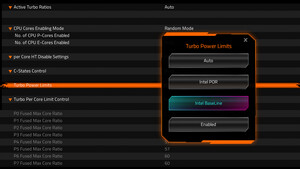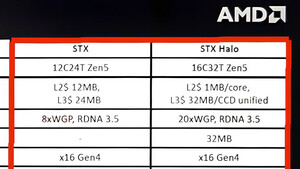thommy86
Commander
- Registriert
- März 2009
- Beiträge
- 2.385
Guten Abend,
ich habe noch aktuell den i7 9700K. Möchte mir aber bald eine neue CPU holen und zwar den i7 12700K.
Es soll ja 12 Kerne haben, 8 normale und 4 kleine, warum auch immer. Jeder von den hat unterschiedlichen Takt
Wie zeigt es den Takt an, wenn beispiel die großen Kerne 4,6 Ghz haben und die kleinen nur 3 Ghz? Zeigt dann CPU Z zwei verschiedene Taktraten an? Und wie sieht es mit Turbo Modus ausschalten? Wenn ich statt mit Turbo Modus 5 Ghz erreiche, dann aber ohne Turbo Modus 5 Ghz einstelle und dafür Turbo Modus deaktiviere? So ist es ja noch auf den Intel i7 9700K möglich im BIOS.
ich habe noch aktuell den i7 9700K. Möchte mir aber bald eine neue CPU holen und zwar den i7 12700K.
Es soll ja 12 Kerne haben, 8 normale und 4 kleine, warum auch immer. Jeder von den hat unterschiedlichen Takt
Wie zeigt es den Takt an, wenn beispiel die großen Kerne 4,6 Ghz haben und die kleinen nur 3 Ghz? Zeigt dann CPU Z zwei verschiedene Taktraten an? Und wie sieht es mit Turbo Modus ausschalten? Wenn ich statt mit Turbo Modus 5 Ghz erreiche, dann aber ohne Turbo Modus 5 Ghz einstelle und dafür Turbo Modus deaktiviere? So ist es ja noch auf den Intel i7 9700K möglich im BIOS.



